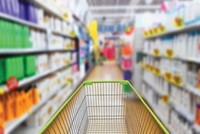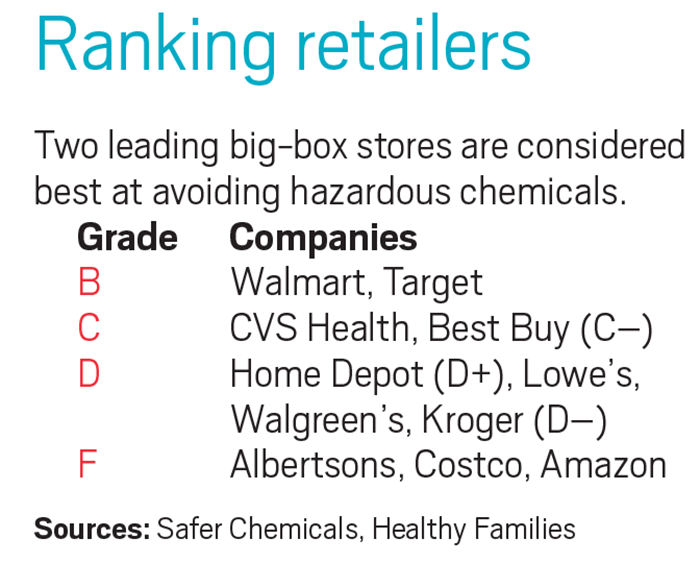Advertisement
Grab your lab coat. Let's get started
Welcome!
Welcome!
Create an account below to get 6 C&EN articles per month, receive newsletters and more - all free.
It seems this is your first time logging in online. Please enter the following information to continue.
As an ACS member you automatically get access to this site. All we need is few more details to create your reading experience.
Not you? Sign in with a different account.
Not you? Sign in with a different account.
ERROR 1
ERROR 1
ERROR 2
ERROR 2
ERROR 2
ERROR 2
ERROR 2
Password and Confirm password must match.
If you have an ACS member number, please enter it here so we can link this account to your membership. (optional)
ERROR 2
ACS values your privacy. By submitting your information, you are gaining access to C&EN and subscribing to our weekly newsletter. We use the information you provide to make your reading experience better, and we will never sell your data to third party members.
Consumer Products
Amazon unveils chemical policy for private-label products
Online retailer to restrict chemicals of concern in baby, personal care, cleaning, and cosmetics products
by Melody M. Bomgardner
October 16, 2018
| A version of this story appeared in
Volume 96, Issue 42

A new chemical policy is coming to a small corner of Amazon’s vast online bazaar. The retailer says its private-label consumer products will be formulated without 54 chemicals found to be carcinogenic, mutagenic, persistent, bioaccumulative, or otherwise potentially harmful.
Private brands are a small but growing portion of Amazon’s sales. The site sells a handful of baby, personal care, cleaning, and cosmetics products labeled as Amazon Essentials, and AmazonBasics, and with less-obvious names such as Presto. The restricted chemicals generally fall under the categories of parabens, phthalates, nonylphenol and nonylphenol ethoxylates, and formaldehyde donor preservatives. Amazon’s list also includes the antimicrobial triclosan.
The move comes one month before the release of an annual report grading retailer chemical policies from Safer Chemicals, Healthy Families, a consortia of consumer advocacy groups. Amazon scored a D in the 2017 report.
Similarly, Rite Aid drug stores scored a D+ last year; last month, the chain expanded the list of chemicals it will restrict in private-brand items to 69 from eight. In a press release, Rite Aid acknowledged that it worked with Safer Chemicals in its efforts to replace chemicals of concern with safer alternatives.
“Our campaign and annual retailer report card has spurred a race to the top in the retail sector,” Mike Schade, director for Safer Chemicals, Healthy Families’ Mind the Store campaign tells C&EN. “Just like last year, we’ve seen a number of retailers announce significant new policies, or expand their programs, to tackle toxic chemicals.” Home Depot and Costco were among retailers that announced new policies ahead of the 2017 report.
Old-fashioned petitions and letter-writing campaigns can also convince retailers to stop selling certain products, Schade points out. His group helped organize consumer campaigns asking Lowe’s and other hardware stores to stop carrying paint strippers made with methylene chloride. Recently, AutoZone, PPG, and Kelly Moore also banned the products.
Meanwhile, the report card approach has been so successful that this year Safer Chemicals, Healthy Families will grade 12 additional companies on their chemical policies, or lack thereof. On the list will be grocery stores such as Aldi’s; Starbucks and McDonald’s; and the dollar-store chain 99 Cents Only.





Join the conversation
Contact the reporter
Submit a Letter to the Editor for publication
Engage with us on Twitter